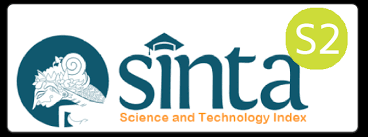Engagement with Mathematics: The Influence of Teachers
Abstract
Recent decades have seen growing concern over the lowering levels of engagement with mathematics in Australia and internationally. This paper reports on a longitudinal study on engagement with mathematics and explores the influences of teachers on the students’ engagement with mathematics. Findings reveal that the development of positive pedagogical relationships between students and their teachers forms a critical foundation from which positive engagement can be promoted.
Keywords
Full Text:
PDFReferences
Anthony, G., & Walshaw, M. (2009). Effective pedagogy in mathematics (Vol. 19). Belley, France.
Askew, M., Brown, M., Rhodes, V., Johnson, D., & Wiliam, D. (1997a). Effective teachers of numeracy: Final report. London: King's College.
Askew, M., Brown, M., Rhodes, V., Wiliam, D., & Johnson, D. (1997b). Effective teachers of numeracy in primary schools: Teachers' beliefs, practices and pupils' learning. Paper presented at the British Educational Research Association Annual Conference. Retrieved January 8, 2009, from http://www.leeds.ac.uk/educol/documents/000000385.htm.
Australian Association of Mathematics Teachers [AAMT]. (2006). Standards of Excellence in Teaching Mathematics in Australian Schools. Adelaide: Australian Association of Mathematics Teachers.
Boaler, J. (2002). Learning from teaching: Exploring the relationship between reform curriculum and equity, Journal for Research in Mathematics Education, 33, 239–258.
Boaler, J. (2009). The elephant in the classroom: Helping children learn and love maths. London: Souvenir Press Ltd.
Callingham, R. (2003, 4–5 December). Improving mathematical outcomes in the middle years. Paper presented at the The Mathematical Association of Victoria Annual Conference:Making Mathematicians, Melbourne, Victoria.
Clarke, D. (2003, 4–5 December). Challenging and engaging students in worthwhile mathematics in the middle years. Paper presented at the Mathematics Association of Victoria Annual Conference: Making Mathematicians Melbourne.
Collins, A., & Halverson, R. (2009). Rethinking education in the age of technology: The digital revolution and schooling in America. New York: Teachers College Press.
Commonwealth of Australia. (2008). National numeracy review report. Canberra, ACT:Human Capital Working Group, Council of Australian Governments.
Delaney, S., Ball, D. L., Hill, H. C., Schilling, S. G., & Zopf, D. (2008). Mathematical knowledge for teaching: Adapting U.S. measures for use in Ireland. Journal for Mathematics Teacher Education, 11(3), 171–197.
Douglas Willms, J., Friesen, S., & Milton, P. (2009). What did you do in school today?Toronto, ON: Canadian Education Association.
Even, R., & Tirosh, D. (2008). Teacher knowledge and understanding of students' mathematical learning and thinking. In L. D. English (Ed.), Handbook of international research in mathematics education (2nd ed., pp. 202–222). New York: Routledge.
Fair Go Team, NSW Department of Education and Training (2006). School is for me:Pathways to student engagement. Sydney: NSW Department of Education and Training.
Fredricks, J. A., Blumenfeld, P. C., & Paris, A. H. (2004). School engagement: Potential of the concept, state of the evidence. Review of Educational Research, 74(1), 59–110.
Goos, M. (2004). Learning mathematics in a classroom community of inquiry. Journal for Research in Mathematics Education, 35(4), 258–291.
Hayes, D., Mills, M., Christie, P., & Lingard, B. (2006). Teachers and schooling making a difference. Sydney: Allan & Unwin.
Hickey, D. T. (2003). Engaged participation versus marginal nonparticipation: A stridently sociocultural approach to achievement motivation. The Elementary School Journal, 103(4), 401–429.
Hill, H. C., Ball, D. L., & Schilling, S. G. (2008). Unpacking pedagogical content knowledge:Conceptualising and measuring teachers' topic-specific knowledge of students. Journal for Research in Mathematics Education, 39(4), 372–400.
Lovitt, C. (2000). Investigations: A central focus for mathematics. Australian Primary Mathematics Classroom, 5(4), 8–11.
Lowrie, T. (2004, 4–5 December). Making mathematics meaningful, realistic and personalised: Changing the direction of relevance and applicability. Paper presented at the Mathematical Association of Victoria Annual Conference 2004: Towards Excellence in Mathematics, Monash University, Clayton, Vic.
Marks, H. M. (2000). Student engagement in instructional activity: Patterns in the elementary, middle, and high school years. American Educational Research Journal, 37(1), 153–184.
Martin, A. J. (2008). Motivation and engagement scale: High school (MES-HS) Test user manual. Sydney: Lifelong Achievement Group.
McGee, C., Ward, R., Gibbons, J., & Harlow, A. (2003). Transition to secondary school: A literature review. Ministry of Education, New Zealand.
McPhan, G., Moroney, W., Pegg, J., Cooksey, R., & Lynch, T. (2008). Maths? Why not? Canberra: Department of Education, Employment and Workplace Relations.
Newmann, F. M., Marks, H. M., & Gamoran, A. (1996). Authentic pedagogy and student performance. American Journal of Education, 104(1), 2–41.
NSW Department of Education and Training. (2003). Quality teaching in NSW public schools. Sydney: Professional Support and Curriculum Directorate.
Ricks, T. E. (2009). Mathematics is motivating. The Mathematics Educator, 19(2), 2–9.
Schulman, L. S. (1986). Those who understand: Knowledge growth in teaching. American Educational Research Journal, 15(2), 4–14.
State of Victoria Department of Education and Training. (2004). Middle years of schooling overview of Victorian Research 1998–2004. Retrieved July 7, 2005, from www.sofweb.vic.edu.au/mys/docs/research/
Sullivan, P., & McDonough, A. (2007, 2–6 July). Eliciting positive student motivation for learning mathematics. Paper presented at the Mathematics: Essential Research, Essential Practice: 30th Annual Conference of the Mathematics Education Research Group of Australasia, Hobart, Tasmania.
Sullivan, P., McDonough, A., & Harrison, R. T. (2004, 14–18 July). Students' perceptions of factors contributing to successful participation in mathematics. Paper presented at the 28th Conference of the International Group for the Psychology of Mathematics Education (PME 28), Bergen, Norway.
Sullivan, P., Mousley, J., & Zevenbergen, R. (2005). Increasing access to mathematical thinking. The Australian Mathematical Society Gazette, 32(2), 105–109.
DOI: https://doi.org/10.46517/seamej.v1i1.8
Refbacks
- There are currently no refbacks.
Indexed by:
Southeast Asian Mathematics Education Journal
SEAMEO Regional Centre for QITEP in Mathematics
Jl. Kaliurang Km 6, Sambisari, Condongcatur, Depok, Sleman
Yogyakarta, Indonesia
Telp. +62 274 889955
Email: seamej@qitepinmath.org
p-ISSN: 2089-4716 | e-ISSN: 2721-8546
Southeast Asian Mathematics Education Journal is licensed under a Creative Commons Attribution 4.0 International License
View My Stats
Supported by:



